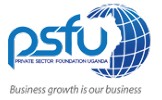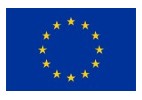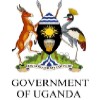The European Union (EU) has reaffirmed its commitment to Uganda’s sustainable development goals with a substantial investment aimed at advancing the country’s clean energy transition. This initiative underscores the EU’s dedication to supporting renewable energy projects and enhancing energy access across Uganda.
Announced by the EU Delegation to Uganda, the investment aims to bolster Uganda’s efforts in transitioning to clean and sustainable energy sources, thereby reducing reliance on fossil fuels and mitigating climate change impacts. Uganda, like many countries in the region, faces challenges related to energy access and environmental sustainability, making the EU’s support timely and critical.
Ambassador Jan Sadek, Head of the EU Delegation to Uganda, highlighted the transformative potential of clean energy investments in driving economic growth and improving livelihoods. He underscored the EU’s commitment to promoting green technologies and fostering a sustainable energy sector that benefits all Ugandans, particularly in rural and underserved communities.
The EU’s financial commitment will support a range of initiatives, including the development of renewable energy infrastructure, capacity building in renewable energy technologies, and policy reforms to create an enabling environment for clean energy investments. These efforts aim to increase energy access, enhance energy efficiency, and reduce greenhouse gas emissions in Uganda.
The initiative aligns with Uganda’s national development priorities and its ambition to achieve universal access to clean and affordable energy by 2030, as outlined in its Sustainable Development Goals (SDGs) agenda. By supporting clean energy projects, the EU seeks to contribute to poverty reduction, promote sustainable economic growth, and improve living standards for Ugandan citizens.
In addition to infrastructure and technology development, the EU’s support will focus on promoting private sector involvement and fostering partnerships between European and Ugandan businesses in the renewable energy sector. These collaborations are expected to drive innovation, create jobs, and stimulate economic opportunities while advancing Uganda’s clean energy transition.
The EU’s commitment to Uganda’s clean energy transition reflects its broader climate action agenda and commitment to the Paris Agreement goals. By investing in sustainable energy solutions, the EU aims to strengthen resilience to climate change impacts and promote inclusive and sustainable development in Uganda and beyond.
Looking ahead, the EU and Uganda will continue to work closely together to implement and expand clean energy initiatives that contribute to a greener, more resilient future. Through international cooperation and strategic investments, they aim to accelerate progress towards sustainable development goals and ensure a brighter future for all Ugandans.





